This question may seem incongruous to many of our European readers for whom the General is the symbol, like Churchill, of resistance to invasion, of refusal to submit to the law of the strongest. The Second World War showed us that there are two schools of thought when faced with an invader. The "Churchill-de Gaulle" school: fight everywhere, in the air, on the sea, on land, in the fields, the streets, the beaches. And the "Pétain school": negotiate with the invader so that he enslaves us with our agreement.
Understand who can, but in France, almost 80% of the politicians and main influencers who claim to be Gaullists are pro-Russian. As pro-Russians, I classify both those who are openly "Putinophiles" (a small minority) and those who are, supposedly, for "peace" - in the manner of Miss World who declares herself to be for the end of famine and for peace in the world. What peace, and under what conditions, they are unable to say, but in the debates, they always put forward one of the same two demands, chosen according to the current military situation. When the Russians are in a good position, such “peaceniks” invariably demand putting a stop to arming the Ukrainians, as this would prolong the war and thus the suffering of the latter. And when the Ukrainians are on the offensive, they solemnly demand that the fighting stop immediately. As former French president François Mitterrand once said (about the West-USSR confrontation): pacifism is in the West - and missiles in the East.
Alas, it is not unknown there are Gaullists who represent the "appeasement" camp. You have, in particular, Eric Ciotti, the president of the "Les Républicains" party (heirs to General de Gaulle's political party), Chirac, Sarkozy, Pierre de Gaulle (the General's grandson), Henri Guaino (a very influential intellectual of the Gaullist right and former special adviser to Nicolas Sarkozy), and so on. These are people who, normally, could not be accused of lack of knowledge of General de Gaulle's thought, and yet...
De Gaulle, in his deeds as well as in his speeches, always considered Washington as an ally and Moscow as a threat. One only has to listen to General de Gaulle's speeches at the height of the US-USSR crisis in 1961, during which he proved to be an even more eager ally of the United States than Great Britain. He stated unambiguously that in the face of "ambitious imperialism” (on Moscow’s part), "any retreat by the West would weaken the Western side" and "overexcite the aggressor". Some will argue that “Moscow” was the USSR and not Russia, but the General was only talking about Soviet Russia and not the USSR. All his life, Charles de Gaulle considered that ideologies are only a passing phase in the life of nations.
Thus, he wrote in 1919: "Bolshevism will not last forever in Russia. The day will come when order will be restored and Russia, rebuilding her forces, will look around her. On that day, she will see herself as peace will leave her, i.e. deprived of Estonia, Finland, Poland, Lithuania, and perhaps the Ukraine. Will it be satisfied with this? We do not believe so. The same causes producing the same effects, we will see Russia resume its march towards the West and the South-West. Where will Russia look for help to continue the work of Peter the Great, Catherine II? Let us not say it too loudly, but let us know and think about it: it is to Germany's side that she will inevitably turn her hopes. That, gentlemen, is why France is lending Poland and Romania such broad military support (...). Each of our efforts in Poland, gentlemen, is a little more glory for eternal France.”
For General de Gaulle, this is a constant in history: Russia is a vindictive power of which Germany is a natural ally. In this context, Poland's best ally is France, because without Paris, Warsaw is at the mercy of Berlin and Moscow; and without Warsaw, Paris is at the mercy of Berlin. The historian and geopolitologist Philippe Fabry has brilliantly demonstrated that it is false to claim that Russia is a historical ally of France. Worse: on the rare occasions when it was, this did not work, and the result was catastrophic for both countries. For Fabry, the German-Russian alliance has always been bad for France. And if Ukraine loses the war, this will strengthen Russia and therefore Germany, while anything that weakens that alliance is good for France and Europe.
In fact, most of those who call themselves Gaullists in France exhibit a very superficial reading of de Gaulle's texts. They will tell you that he was anti-American and wanted rapprochement with the USSR to counterbalance the hegemony of the USA. This is a manipulation of history worthy of the great times of Soviet propaganda. These (so-called) Gaullists will present you with flattering texts by the General on Russia, but such texts date essentially from his state visit to the USSR: who can imagine the great Charles insulting the country which hosted him? On the other hand, when you read his memoirs and many other texts, you realise that he had a holy horror of the USSR and that it is quite unlikely that he wanted a rapprochement between France and that regime. Moreover, he called the USSR and its satellites "the totalitarian camp". What is more, if de Gaulle had wanted such rapprochement, why did he shape and calibrate the entire French army to confront the Red Army? It is true that during his presidency, de Gaulle tried from time to time to use Moscow as a counterweight to Washington. However, neither the Soviet nor the American leaders were fooled. This policy served above all to soften the French Communist Party and its voters, who were the main political force on the left at that time and hated the other left-wing parties, the "social traitors", more than anything else in the world.
Secondly, although de Gaulle sought a balanced relationship with the Americans as equals (which particularly annoyed Washington), he was never anti-American. He always considered himself in the Western camp with the Americans and the British. Moreover, he did not leave NATO, which, after all, was a military organisation created against the USSR by the Americans. Most importantly, what is often forgotten, General de Gaulle only left the integrated command of NATO (but not NATO itself, as some would have us believe!) in order to ensure, in particular, his total control of nuclear weapons by not having to ask the Americans for permission to press the "button". Indeed, the General greatly feared that the Americans would not have the courage to retaliate with nuclear weapons if the Soviets invaded Western Europe in a conventional manner. Leaving the integrated command gave him absolute independence of decision on the use of nuclear weapons, and he made this known to those concerned. In the event of an invasion, he would eliminate the armies of the Soviet bloc on the German plains with nuclear fire and send the French army to eradicate the surviving units. The entire French army was conceived as “cavalry troops”, only to be employed after the use of nuclear weapons. Some Soviet strategists will say that this French sword of Damocles counted more than the American nuclear threat in which the Soviets had little faith in the event of a conventional invasion of Western Europe.
Some will reply that times have changed, that geopolitical permanency does not exist. On the other hand, they will not be able to deny that the General's only objective were the interests of France and that he never hesitated to rely on American means to serve them. However, many of our "pacifist gaullists" cry over Russian gas, deplore the destruction of the Nord Stream gas pipeline and blame the Americans. Yet that cheap Russian gas was essential for Germany (Russian gas represents less than 3% of France's energy mix), because it is with that gas that Germany established its economic hegemony over the EU. It is to maintain this hegemony that Berlin has tried to kill France's last competitive advantage: nuclear power. With Brexit and Germany on its knees due to the end of its cheap Russian gas, for the first time in two centuries, France has a unique opportunity to reset power relations on the European continent.
The war in Ukraine is an opportunity to reshuffle the cards in Europe in favour of France and thus of a new balance in Europe. Moreover, it is a co-generator of inflation, excellent for the colossal debt of Paris as well as Rome, and for the devaluation of the euro, which allows a certain breathing space that French, Italian, Spanish and other states have been waiting for.
If France was still participating in an unjust war, we would have to question ourselves, but we are supporting a country that is much less powerful than its aggressor, the victim of an unjustified and unjustifiable barbaric aggression. In doing so, we show that even the world's greatest nuclear power cannot play with impunity with the basic rule of international law and peace: the inviolability of internationally recognised borders.
Failure to do so would open a Pandora's box of border redefinitions around the world, triggering endless wars. And I am not even talking about the risk of nuclear proliferation if Russia were to win, because everyone realises that if Ukraine had kept its nuclear arsenal instead of believing Russia's promise never to attack it, it would be at peace today.
I can already hear the "Putinophiles" objecting: "What about Yugoslavia?” First of all, I would reply that if they thought it was a mistake, why do they support its renewal? Secondly, Yugoslavia was not a nation, but several nations that had been forced to live together. It collapsed on its own, from within. Ukraine, on the other hand, has been demonstrating for a year that it is one nation. The Russian pseudo-referendums for the annexation of southern Ukraine, organised in the Soviet manner, under arms, without any contradictory debate, with a large part of the population absent, cannot be taken seriously for a moment. Last but not least, no NATO country has annexed any Yugoslav territory.
The most desperate "Putinophiles" will argue that the General would never have allied himself with the American wokists but would have defended the Holy Russia, the last bastion of conservatism. What a joke! The current leader of "Holy Russia" was trained and placed in power by the KGB. Putin and his entourage entered the KGB, under Brezhnev and Andropov. This happened at the time when the KGB was the main instrument of repression and propaganda of the Soviet Union, the tool of terror by which the communists kept themselves in power – and Putin had full knowledge of that. Every year Putin celebrates the anniversary of the Cheka, the communist political police that was the forerunner of the Guepev, NKVD and KGB. In addition to deportations, torture and thousands of murders, Cheka executed thousands of clerics. It is as if the German Chancellor celebrated the anniversary of the Gestapo every year. In "Holy Russia", Cyril, the Patriarch of Moscow and All Russia (equivalent to the Pope for Russian Orthodoxy), used to be a member of the KGB under the communist regime. Now he lives as a billionaire, supports Putin's propaganda and his war against other Orthodox Christians with the complicity of Chechen troops who have declared Jihad on the Ukrainians. In "Holy Russia", surrogate motherhood is legal, there are twice as many divorces, three times as many abortions, three times as many murders as in France, and Russians are even less religious than Germans. In "Holy Russia", 80% of Russians think that the Soviet era was a good time and 63% miss the USSR. Imagine the Germans missing the Third Reich.
Another of the favourite ideas of the pro-Russian Gaullists is that they want to prevent Russia from disintegrating. Of course, when the Russian Empire collapses, the risk of chaos, civil wars and territorial disputes will be immense. But this is an inevitable fate of any empire - and surely one of the reasons for Putin's headlong rush. For as I wrote in January 2022, whether Putin invades Ukraine or not, whether NATO intervenes or not, whether it supports Ukraine or not, sooner or later Russia will be dismembered, whether we like it or not. Moreover, for these fierce anti-Americans, this should be considered as an invaluable opportunity to rebuild another Europe that could be a real counterweight to the USA. Indeed, Russia, in its current condition, is far too big, powerful and authoritarian for the other European states to associate with it: this would amount to voluntary enslavement. On the other hand, integration of the Ukraine and the European part (i.e. without Asia) of Russia is much more feasible (what will then happen to Siberia? - I will come back to this question shortly). Moreover, it was surely not for nothing that de Gaulle called for a union of "Europe, from the Atlantic to the Ural": it is not that he wanted to integrate Soviet Russia, but that he intended to welcome Russia into the European family only once it had abandoned its imperial ambitions and thus Asia.
One could say that all these pseudo-Gaullists have a total ignorance of what Putin's regime is: that for 20 years it has been rearming Russia, rehabilitating Stalin, preaching the most primitive Russian imperialism and preparing its population for a confrontation with the West. But how can they not see that the war has allowed all the opponents to flee and the entire Russian society to be brought to heel? That the war allows Putin to prolong his national-Bolshevik regime, which is almost a quarter of a century old, at the end of its rope and led by Soviet KGB boomers with no succession and close to the retirement home? For Putin's regime, peace is unthinkable, because it would mean the end of that regime.
The most disturbing thing is not the naivety (not to say stupidity...) of these pseudo-Gaullists, but their pacifism which is only useful to Russia. Moreover, they relativise Russia's responsibility by repeating almost word for word the Kremlin's narrative about "humiliated Russia", "surrounded by NATO", "pushed to the limit by the USA", the "Maidan coup", the "genocide in Donbass" and other manipulations coming out of the Russian propaganda services. How can we not think of de Gaulle who complained that, in the 1930s, the "pro-peace" influencers were in fact paid by the Germans and that they had wasted 3 precious years of France's rearmament?
In 2022, the Gaullists finally had a unique chance to take advantage of French sympathy for Ukraine to demonstrate that the values of the General – the defence of a nation, of its particular identity, of popular sovereignty, of borders - were fundamental for any democracy. Instead, they isolated themselves even more from the rest of the French population by locking themselves in the defence of a dictatorship attacking a European country. They preferred to drone on about Russian propaganda in the interests of Germany - instead of thinking about the greatness of France and Europe.
Read also
Country Report: France, April 2023 - Is France in a political or institutional crisis?
The month of April has been marked by two major events in France. First, the continuing protest against the pension reform, which, for many experts, constitutes a regime crisis that could lead to a Sixth Republic.
Patrick Edery
Interview with Loup Viallet
Russian imperialism seeks to take our continent in its stranglehold by destabilising our external borders. Putin is applying a strategy of chaos in which we are collectively the target.
Patrick Edery
Loup Viallet: To become an essential power on the European stage, Poland must develop its African geopolitics and build convergences with France
Loup Viallet is a specialist in African geopolitics and international economics
Patrick Edery
France can thank the heroes who destroyed the Nord Stream I & II pipelines
For several months now, everyone has been wondering about the nationality of those who destroyed the two gas pipelines linking Russia to Germany. Were they American? British? Danish? Finnish? Norwegian? Polish? Swedish? Russian? Ukrainian? And why not French?



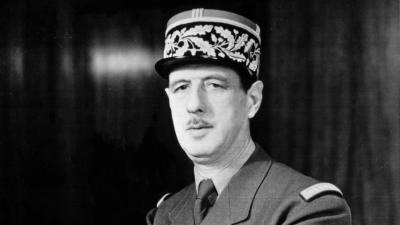

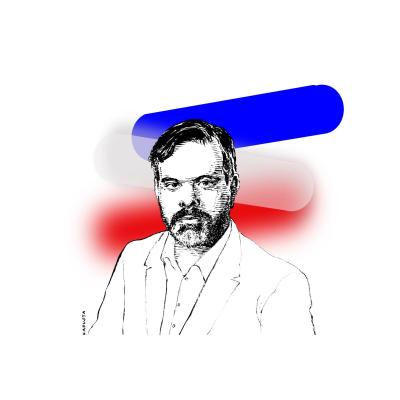
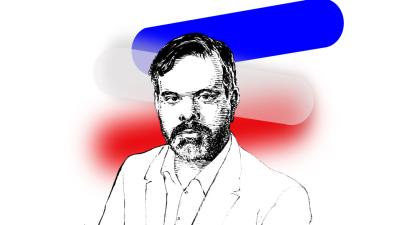



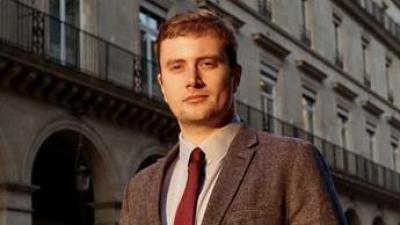

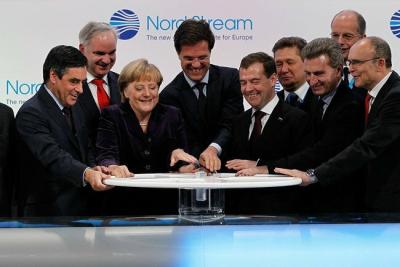

Comments (0)